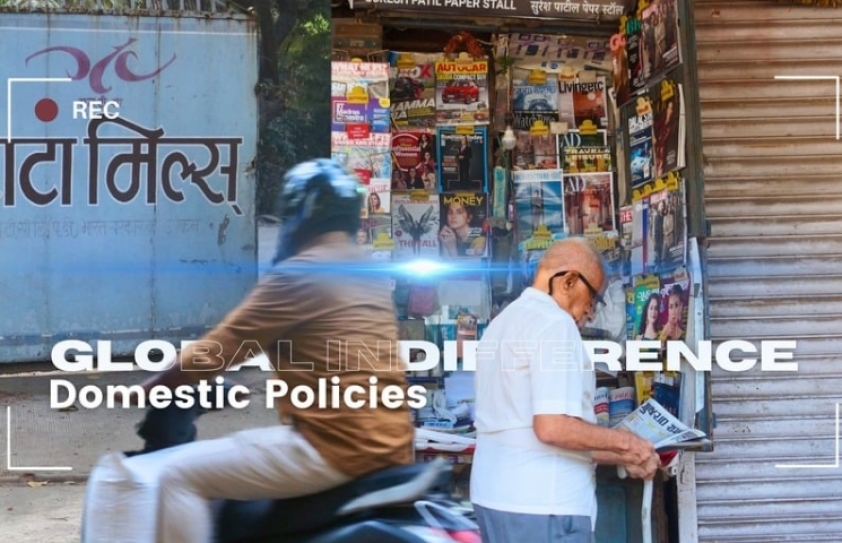
POLITICS: GLOBAL INDIFFERENCE AND DOMESTIC POLICIES DRIVE DIVISIVE AGENDAS
by HUMRA QURAISHI September 28 2024, 12:00 am Estimated Reading Time: 5 mins, 6 secs"The relentless violence of war and communal strife continues to plague innocent lives, while global powers and political rulers remain oblivious, leaving humanity to bear the scars." Humra Quraishi writes…
Photography: Vinta Nanda
The ongoing devastation of war in the Middle East, spilling from Palestine into Lebanon, highlights the urgent need for global intervention to halt the humanitarian crisis. As political leaders remain indifferent, innocent civilians continue to suffer unimaginable horrors—orphans, displacement, and lack of basic necessities like food and water. At home in India, alarming communal tensions rise as new regulations targeting street vendors and eateries threaten to deepen societal divides. With the rise of right-wing extremism and policies that provoke religious unrest, the time to demand peace, justice, and responsible leadership is now. This article calls for awareness, intervention, and accountability in the face of growing violence and division.
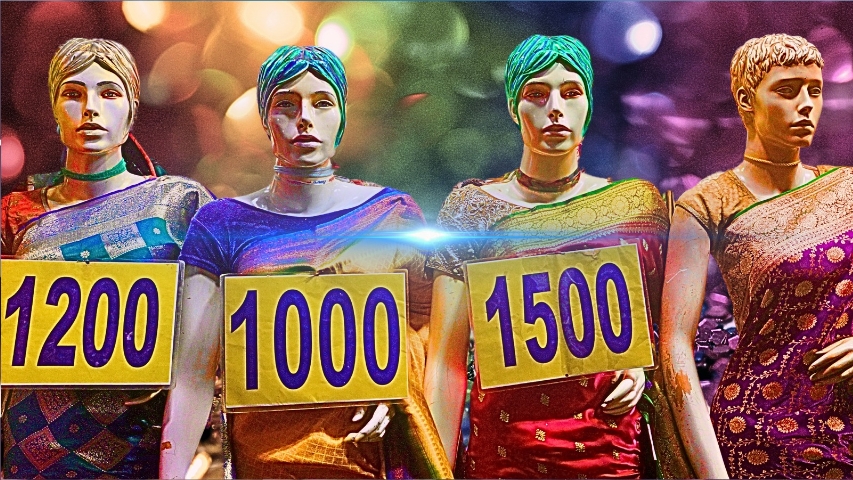
War and the Deafening Silence of World Powers
As war rages on in the Middle East, the devastation is now spilling beyond Palestine and deep into Lebanon, leaving behind nothing but destruction and death. The violence shows no sign of abating, and the scars it inflicts will last for generations. Yet, the world watches in silence.
The so-called superpowers—led by America and its allies—seem unwilling or unable to intervene. Where are the emergency summits and the urgent calls for peace? These global leaders should be convening their meetings not in the comfort of Western capitals but at the heart of the Gaza Strip or along the borders of Lebanon. There, they could witness the brutal consequences of war firsthand—the destruction of homes, the deaths of innocent civilians, and the unimaginable suffering of those who survive, now orphaned, displaced, and without basic needs like food, water, and medical care.
It is beyond comprehension how the political rulers of the day can sleep at night, seemingly unperturbed by the mass killings unfolding before our eyes. These men and women cannot be called leaders—they are political rulers, at best, more interested in hopping from summit to summit, adorned in their finest attire, delivering hollow speeches filled with promises that never materialize. They show no inclination to visit the war-torn regions they so blithely discuss, never getting close enough to grasp the full scope of the human tragedy.
We see the haunting images—Palestinian children weeping, mothers mourning, fathers sitting in numb shock, teenagers crying out in despair—but those who wield power remain in their ivory towers, unmoved. Their expansionist policies continue to feed off military might, showing no regard for the innocent lives trampled beneath their ambitions.
As I reflect on these horrors so close to the birth anniversary of Mahatma Gandhi, I wonder: what would he have done if he were alive today? Gandhi would have undoubtedly travelled to Palestine and Lebanon, offering solace to the survivors, providing aid, and working tirelessly to find a peaceful resolution. His legacy of nonviolence, his commitment to justice, and his deep compassion for all people would stand in stark contrast to the indifference of today's political rulers. Gandhi would not have rested until he had brought some semblance of peace to these shattered lands, just as he did during communal violence in India through his peaceful marches and presence in riot-torn regions.
Communal Tensions at Home: A Dangerous Precedent
Meanwhile, closer to home, we see alarming developments that threaten to stoke further communal tensions in India. In Uttar Pradesh and Himachal Pradesh, new regulations require street vendors and eateries to display not just their licenses but their names and photographs as well (At the time of going to print I’m hearing that both Mallikarjun Kharge, President of the Indian National Congress and Rahul Gandhi, Leader of Opposition in Parliament, have expressed their displeasure with the government of Himachal Pradesh, which is led by their political party). At first glance, this may seem innocuous, but the potential for communal unrest looms large. These moves risk igniting religious tensions, especially in a country where caste, creed, and community have historically been lightning rods for conflict.
For years, we have eaten at street stalls and local vendors without giving a second thought to the owner’s identity. Yet now, this government-driven tactic threatens to divide even the simple act of eating. Such policies could spark street fights, riots, and even civil strife, all of which are ignited by political agendas. Civil strife, once sparked, spreads quickly, engulfing the lives of everyday citizens.
Reports from Shimla, where communal tension recently flared up over the Sanjauli mosque controversy, suggest that this new name-display regulation could exacerbate the already fragile situation. Though the local Muslim community in Shimla took the initiative to defuse tensions by offering to dismantle the disputed section of the mosque, the underlying discord remains unresolved.
This policy of name displays for food vendors is not just a misguided attempt at ensuring hygiene; it’s a dangerous precedent that intertwines food, identity, and religion. While ensuring that hygienic food is sold should indeed be a priority, it is unclear how the vendor's caste, creed, or community has any bearing on food safety. These communal policies are a ticking time bomb, waiting to explode.
As if this wasn’t enough, we must also question the government's decision to invite foreign diplomats to witness the elections in Jammu and Kashmir. What is the purpose behind this spectacle? Is it merely a ploy to present a facade of normalcy to the world? In today's world, facts cannot be swept under the rug for long. Kashmiris remain apprehensive, aware that the government has deployed tactics designed to deepen their fears. They know that the Right-Wing political lot has unleashed new strategies in their midst, accelerating their anxiety.
In a time where global powers turn a blind eye to genocide, and domestic policies seem designed to provoke division, the question remains: how long can this continue? How much more destruction, death, and division must we witness before there is a collective cry for peace, unity, and justice?

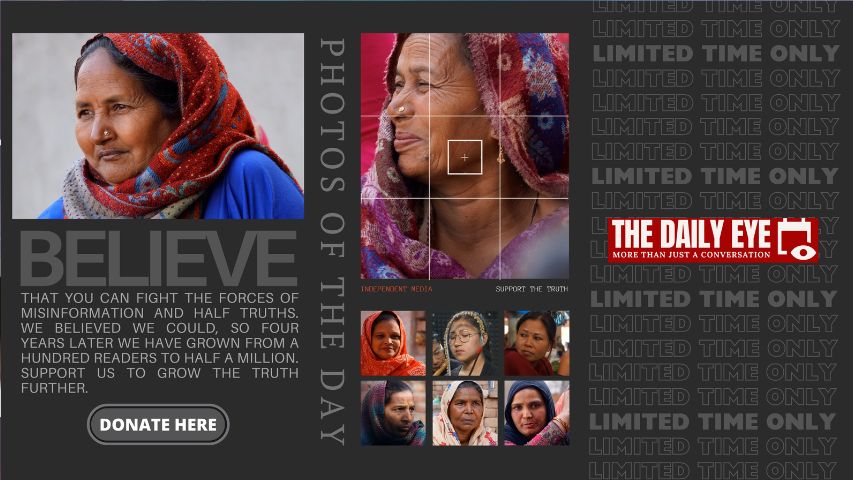



-173X130.jpg)
-173X130.jpg)
-173X130.jpg)
-173X130.jpg)
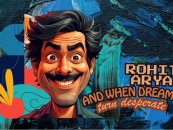
-173X130.jpg)
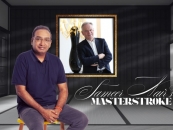
-173X130.jpg)